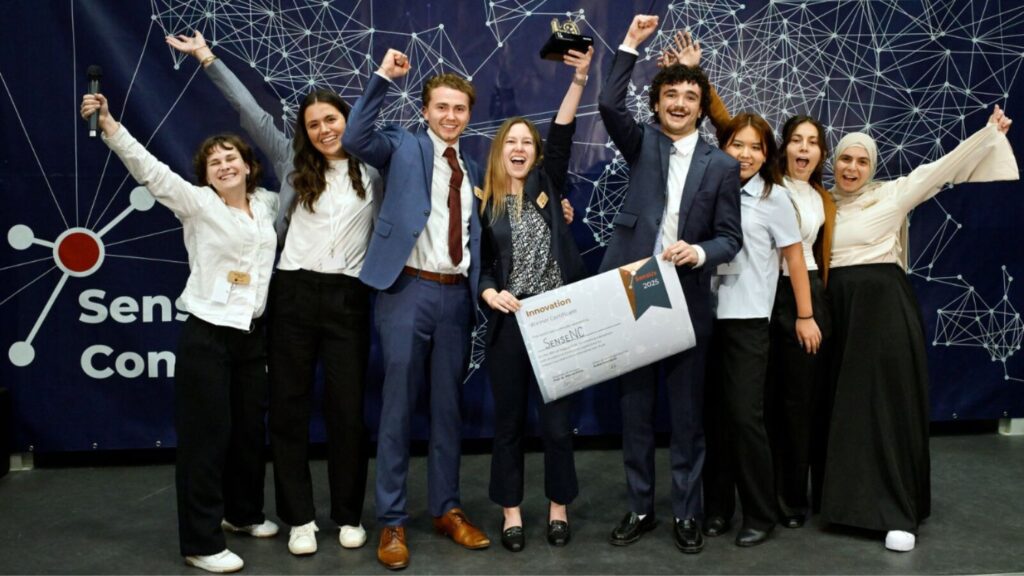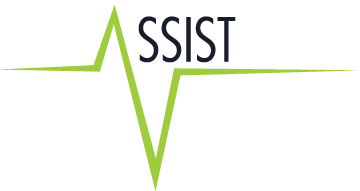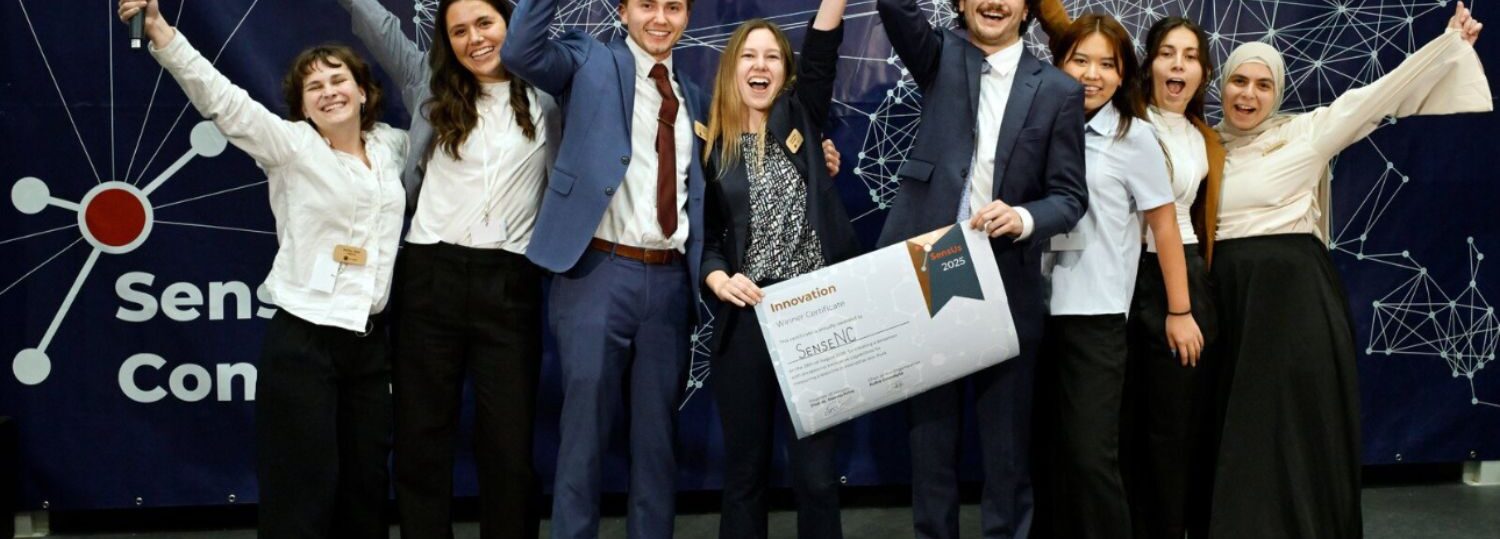
Poole College students Jayden Ford and Ben Cole (second and third from left) celebrate with their teammates from the College of Engineering, College of Sciences, and College of Agriculture and Life Sciences.
We are proud to announce that SenseNC, a student-led, interdisciplin, ary team supported by the Institute of Connected Sensor Systems (IConS) and the ASSIST Centerhas earned the Innovation Award at the 2025 SensUs International Biosensor Competition held at TU/e in the Netherlands.
The SenseNC team’s winning device is a wearable biosensor for measuring creatinine, a key biomarker for kidney function, coupled with a mobile and web-based platform (named CreaCare) to support clinical interpretation and patient engagement. Among competing teams from top universities around the globe, SenseNC stood out for technical excellence, usability, and translational potential.
Interdisciplinary Strength at the Core
What makes this success especially meaningful is the deeply interdisciplinary nature of the team. Engineering and science students in sensor systems, electronics, bioengineering, and data analytics developed the core sensing hardware and signal processing algorithms. They worked through challenges of miniaturization, calibration, biofluid interfacing, low-power electronics, and connectivity to mobile devices. Their technical innovations formed the backbone of the project.
But technical elegance alone would not have been enough. To bring the concept closer to real-world impact, the team also included students from the business school, who led market research, competitive analyses, cost modeling, regulatory pathway planning, pitch development, and user outreach strategy. Together, the team built a coherent product narrative: how to translate a lab prototype into a usable, scalable solution for patients and clinicians.
This blending of strengths, engineering rigor and business motivation, was essential in securing both the Innovation Award and the Public Inspiration Award (for outreach, communication, and engagement) during the competition. (These awards were also recognized in NC State’s coverage of the win.)
From Campus to Global Stage
The seeds of SenseNC were sown in Nelson Hall, where an invitation circulated to students interested in advanced biosensor challenges. Under IConS faculty mentorship (especially Dr. Michael Daniele), the team coalesced around the kidney-health use case. Over months of iterative prototyping, testing, clinical consultation, software development, and pitch refinement, the team prepared for SensUs.
At the competition, they had to defend their design before panels of judges, demonstrate robustness in side-by-side testing, present a business plan, and deliver a compelling public pitch. Their success marks NC State’s first first-place finish in nearly a decade of SensUs participation.
Looking Ahead: Next Steps and Impact
This award is not just a trophy, it is a medical sensor springboard. The SenseNC team plans to advance its prototype toward higher validation, regulatory pathways, and user studies in clinical settings. With ASSIST and IConS support, they hope to spin off into translational research, potential startup efforts, or partnerships with health technology firms.
More broadly, this achievement exemplifies the vision of ASSIST Center and IConS: to enable student teams that cross disciplinary boundaries, combining sensor systems, data analytics, electronics, and entrepreneurial thinking to tackle real-world health challenges.
We extend heartfelt congratulations to all SenseNC team members for succesfully fusing their strengths in engineering, science, and business and thanks to their mentors, collaborators, and supporters throughout the process. This success demonstrates how interdisciplinary collaboration can accelerate innovation from idea to impact.

